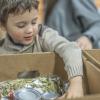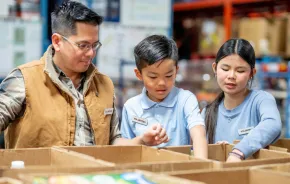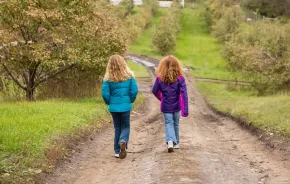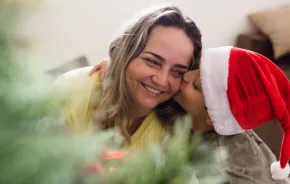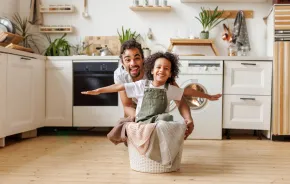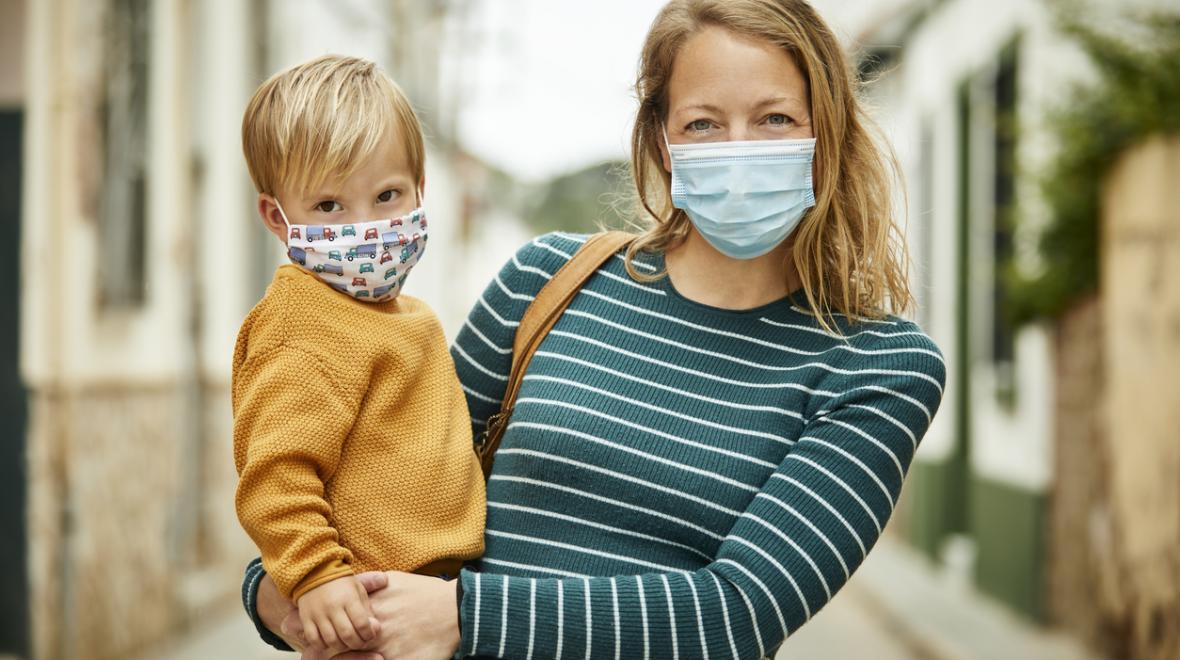
With the arrival of spring and with vaccines rolling out, we find ourselves at the beginning of the end of the pandemic. This is not to say that we are done with precautions and fears, but perhaps there is a lightening around the edges of our daily lives, and with it, thoughts and feelings about reentry into “normal life.”
What will this reentry look like? As has been the case over the past year, there are still many unknowns. I get many questions from the parents I work with asking how kids will recover from this year. I know that this will be an ongoing conversation and one that I am following particularly carefully (for both professional and personal reasons).
Everything I know about humanity and child development points to our innate resilience. I have absolute faith that your kids will be fine, that they will come out of this different than they might have been without it, but absolutely healthy, strong and safe. Kids will learn how to socialize again, and we adults will learn how to trust the world again. It will take patience and love and work, but I believe that the future is bright.
Sadly, as with so many other aspects of this pandemic, the injustices inherent in our society also mean that kids who are already at risk will be impacted more grievously by it. Kids who already lived on the socio-economic margins or without strong, loving attachment figures will need more support and help to recover. We must acknowledge these extra challenges and allocate extra support and resources to kids and families who have been most grievously impacted by COVID-19.
Here we have a classic case of both/and: We can both feel incredible empathy for others whose situations may be more intense than our own, and still grieve for our own personal losses of the past year. Parents have been doing a nearly impossible thing; parenting young children is challenging under the best of circumstances, and the past year has been really, really hard. Here are some thoughts on recovery and reentry.
Be kind and compassionate to yourself and others.
One of the ways we take care of ourselves is by noticing our reactions. What has this year been like? How have you coped? Can you give yourself credit for facing the challenges and marshaling your responses to them?
Cultivate love and patience.
Many kids will do just fine as they re-integrate into school and other social activities. Some trepidation and anxiety are totally normal. Other kids will need more support as they navigate reentry. Talk through those fears with your kids in an honest way. Trust in their resilience. Know that some of this might mean two steps forward and one step back.
Go slow and make a plan.
For some of you extroverted types, the impulse might be to get back out there as quickly as possible. Remember that our stamina for some social interaction is not where it was a year ago. Again, be kind to yourself through this. Making a plan for how you will begin to open up your world again may make this process easier. Perhaps you start by visiting a park during a less-trafficked time or go to a grocery store that you know is less busy. These small steps will build into powerful growth.
Identify discomfort versus distress.
When we are venturing out into the world again, it will be completely normal to have some anxiety. We have trained our brains to avoid certain activities in order to stay safe under exceptional circumstances. We must learn to tolerate some discomfort as we approach the world again. For instance, kids going back to school in person for the first time may express nervousness. As a parent, you can validate that feeling nervous is completely understandable. You might also guess that they feel excited as well. Naming emotions is important, as is normalizing feelings. Your kids are joining so very many others in their cohort who feel similarly.
That said, discomfort is a place we can often learn from, but distress is a completely different beast. There is no hard-and-fast definition for this. You know your child best. But distress is marked by an inability to cope and the feeling of being overwhelmed. We don’t grow if we don’t work on walking that line between discomfort and distress. This is something to keep in mind as kids return to schooll.
When fears come up, think about them and feel them.
It is normal to feel some fear as we change behaviors that have become normalized over the past year. Be gentle and have compassion with your responses. As you do so, you may also find yourself grieving the losses of the past year, both personally and collectively. The only way out of grief is through it, allowing yourself to have feelings and to move through them.
Acknowledge and respect differences of opinion between partners.
It is understandable that two different parenting partners may have different risk tolerances. It is really important that we treat our partner with respect about his or her fears, anxieties and hopes as we reenter the world. This is an important time to keep talking about your own emotional responses, so that both of you can be more present to support your kids.
What is the story?
One way we humans heal is by making sense of circumstances we have lived through. For our kids, we can help to give them some structure for this narrative. With my own kids, we went through my photos of the past year to make a photo book. When life is viewed this way, it can become more understandable. The year 2020 is part of our human story now, and it will take time to make sense of what has happened.
What do we want to keep?
Most of us understand the concept of post-traumatic stress disorder (PTSD), in which our hearts, minds and bodies struggle to cope after a traumatic event. Perhaps less well known is the idea of post-traumatic growth, wherein we can take the lessons forward from a traumatic event. None of us would wish to have had this tragedy of COVID happen, but that doesn’t mean that we can’t find positive aspects of it or grow from it. Perhaps there are routines that have developed over the past year that you might want to keep. My hope for you and your family is that you find the possibilities inherent in this moment, while healing from the trauma of this past year.





